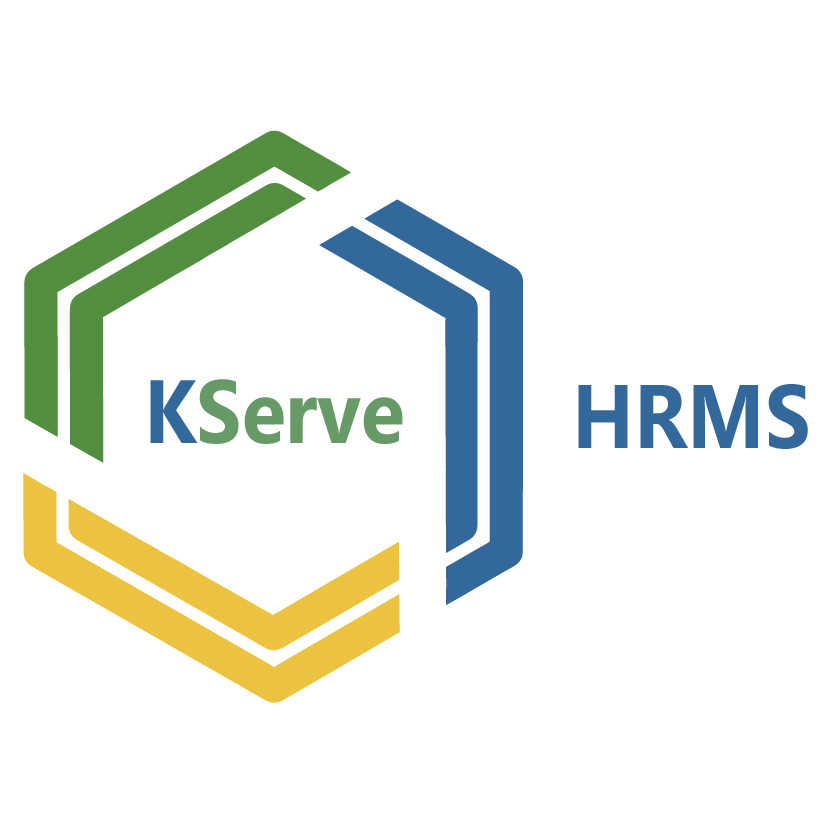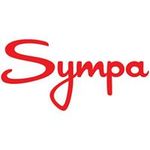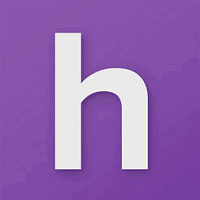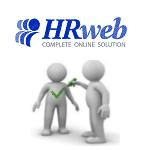Description

KServeHRMS

Sympa
Comprehensive Overview: KServeHRMS vs Sympa
Certainly! Here's a comprehensive overview of KServeHRMS and Sympa:
KServeHRMS
a) Primary Functions and Target Markets
Primary Functions:
- HR Management: Manages core HR tasks like employee records, attendance, and leave management.
- Payroll Processing: Automates payroll calculations and compliance checks.
- Talent Management: Includes modules for recruitment, performance evaluation, and training management.
- Employee Self-Service: Allows employees to access and modify their own HR-related information.
Target Markets:
- Small to Medium Enterprises (SMEs): Particularly those in need of a scalable solution.
- Sectors such as Manufacturing, Retail, and Healthcare: Which require robust employee management frameworks.
- Geographic Focus: Primarily serves markets in India and surrounding regions, given its origin.
b) Market Share and User Base
KServeHRMS, being a regional player, does not hold a significant global market share compared to international competitors. Its user base is primarily concentrated in the Indian subcontinent where SMEs find it an economical and adequate solution for their HR needs.
c) Key Differentiating Factors
- Regional Adaptation: Better adapted to local regulatory and compliance requirements in India.
- Cost-Effectiveness: Offers a budget-friendly solution for small businesses.
- Customization and Flexibility: High level of customization to meet specific business needs within its operational region.
Sympa
a) Primary Functions and Target Markets
Primary Functions:
- Unified HR System: Manages all HR processes including recruitment, learning, and development, personnel data management, and analytics.
- HR Analytics: Provides insights and analytics for HR decision-making.
- Compliance and Reporting: Assists in maintaining compliance with regional HR regulations and generates necessary reports.
Target Markets:
- Mid-Sized to Large Enterprises: Sympa is designed to scale with growing businesses.
- European Companies: Particularly strong in Nordic countries, with a significant presence in other parts of Europe.
- Various Industries: Including technology, finance, and public sector organizations.
b) Market Share and User Base
Sympa has a stronger presence in the Nordic and European markets, providing services to a wide array of mid-sized to large businesses. Its market share is more significant in these regions compared to KServeHRMS, backed by a well-established user base that trusts its comprehensive HR services.
c) Key Differentiating Factors
- Comprehensive Europe-Centric Solution: Offers robust compliance and reporting features tailored for European regulations.
- Scalability: Designed to support growing businesses and larger organizations with complex needs.
- Cloud-Based Accessibility: Emphasizes modern, cloud-based delivery models, allowing for enhanced flexibility and remote management.
Comparison in Summary
- KServeHRMS is primarily tailored for SMEs in India and offers cost-effective, customizable solutions with a regional focus. Conversely, Sympa serves larger enterprises in Europe with a comprehensive, scalable, and compliance-driven HR solution.
- Sympa enjoys a broader market share in European regions due to its robust feature set designed to meet the complex HR requirements of larger organizations, whereas KServeHRMS thrives among smaller Indian businesses seeking budget-friendly HR management tools.
Contact Info

Year founded :
2003
+91 44 4261 5064
Not Available
India
http://www.linkedin.com/company/kservehrms

Year founded :
2005
Not Available
Not Available
Finland
Not Available
Feature Similarity Breakdown: KServeHRMS, Sympa
The comparative analysis provided here is based on the typical features and user interfaces of KServeHRMS and Sympa, widely recognized HRMS solutions. However, specific details can vary based on product versions and updates.
a) Core Features in Common:
-
Employee Records Management
- Both systems provide a comprehensive database for managing employee information, allowing easy access and updates to personnel files.
-
Payroll Management
- They offer payroll processing features, including calculation of salaries, deductions, tax withholdings, and generating pay slips.
-
Benefits Administration
- Both platforms support the management of employee benefits, such as insurance plans, retirement plans, and other perks.
-
Time and Attendance Tracking
- Each solution enables tracking of employee work hours, leave management, and attendance records.
-
Performance Management
- Features for setting performance objectives, conducting appraisals, and managing employee evaluations are present in both.
-
Recruitment and Onboarding
- They offer solutions for handling recruitment processes, applicant tracking, and onboarding new employees efficiently.
-
Self-Service Portals
- Employee and manager self-service portals are provided, enabling users to update personal information, submit leave requests, and view payslips.
b) User Interface Comparison:
-
KServeHRMS:
- Typically offers a user-friendly and intuitive interface focusing on ease of navigation and accessibility. It may emphasize a more streamlined experience for medium to large enterprises, with customizable dashboards and reports.
-
Sympa:
- Known for its modern and visually appealing interface, Sympa often highlights simplicity and clarity. The system tends to favor clean layouts that facilitate quick access to core HR functions, catering to companies of varying sizes.
Overall, while both interfaces are designed to enhance user experience, Sympa might be seen as more contemporary, whereas KServeHRMS offers more customization options.
c) Unique Features:
-
KServeHRMS Unique Features:
- Integration Capabilities: KServeHRMS is well-regarded for its robust integration options, allowing businesses to connect it seamlessly with other enterprise software and services.
- Advanced Customization: Users frequently have more control over customizing features, workflows, and dashboards to align more closely with business-specific HR processes.
-
Sympa Unique Features:
- People Analytics: Sympa focuses on offering more advanced analytics and reporting capabilities, emphasizing data-driven HR strategies with a focus on workforce insights.
- Scalability for International Use: It provides extensive localization options, including language and regulatory support, which is beneficial for organizations operating in multiple countries.
When selecting between these HRMS platforms, organizations often consider specific business needs such as integration requirements, user interface preferences, and unique functional offerings to guide their decision.
Features

Not Available

Not Available
Best Fit Use Cases: KServeHRMS, Sympa
KServeHRMS and Sympa are both human resource management systems (HRMS), but they cater to different types of businesses and needs. Below is an overview of the best fit use cases for each:
a) KServeHRMS:
Best Fit Use Cases:
-
Small to Medium Enterprises (SMEs): KServeHRMS is often an ideal choice for SMEs that need a nimble, cost-effective solution. It tends to be favored by businesses that are undergoing growth and require a scalable HRMS without the complexity and expense of solutions designed for large enterprises.
-
Customization Needs: Companies that require a high degree of customization in their HR processes tend to prefer KServeHRMS. Its flexible architecture allows for tailored workflows and processes that can align closely with specific business needs.
-
Budget-conscious Organizations: Businesses operating under tight budget constraints might find KServeHRMS attractive due to its cost-effectiveness—offering essential HR functionalities without unnecessary additional features that might escalate costs.
-
Local or Regional Focus: Businesses with localized operations, particularly in regions where KServeHRMS has established partnerships and support networks, benefit from its regional insights and customization to local compliance and labor laws.
b) Sympa:
Best Fit Use Cases:
-
Large Enterprises: Sympa is often preferred by larger corporations that require robust, comprehensive HR management solutions capable of handling a vast amount of data across various departments and geographies.
-
Complex HR Requirements: Organizations with complex HR structures, such as those needing integration with other enterprise systems (like ERP or payroll systems), benefit from Sympa's advanced integration capabilities and extensive feature set.
-
Compliance-focused Industries: Sympa’s strong focus on GDPR compliance and its ability to easily adapt to changing regulatory requirements make it particularly attractive to industries such as finance, healthcare, and public sector where data security and compliance are paramount.
-
Global Presence with a Nordic Focus: Sympa is particularly well-suited for businesses with operations in the Nordic region or companies with a global reach that need localized support in those areas. Its extensive multi-language capabilities also support international operations effectively.
c) Industry Verticals and Company Sizes:
-
KServeHRMS caters to:
- Industries: Retail, manufacturing, and service industries where cost efficiency and tailored solutions are valued.
- Company Sizes: Typically small to mid-sized organizations that prioritize customization and budget-friendly solutions.
-
Sympa caters to:
- Industries: Banking, finance, healthcare, public sector, and other compliance-heavy industries that require rigorous data handling and reporting capabilities.
- Company Sizes: Medium to large enterprises that need a comprehensive, integrated HR solution to manage complex organizational structures and extensive employee data.
Both KServeHRMS and Sympa offer distinct advantages depending on the specific needs, size, and regulatory environment of a business, allowing organizations to choose the solution that aligns best with their strategic HR goals.
Pricing

Pricing Not Available

Pricing Not Available
Metrics History
Metrics History
Comparing undefined across companies
Conclusion & Final Verdict: KServeHRMS vs Sympa
To provide a comprehensive conclusion and final verdict on KServeHRMS and Sympa, let's break down the analysis into the required components.
Overall Value Comparison:
When assessing which product offers the best overall value between KServeHRMS and Sympa, certain factors such as functionality, ease of use, scalability, customer support, and cost-effectiveness need to be considered.
-
Functionality: Both KServeHRMS and Sympa provide comprehensive HR management solutions; however, Sympa may be more favored in terms of plug-and-play features and customization capacities suitable for larger enterprises, while KServeHRMS may be more adaptable for mid-sized organizations focusing on straightforward deployment.
-
Ease of Use: Sympa generally scores higher in terms of user-friendliness and intuitive interface. KServeHRMS may require a steeper learning curve due to its complexities in customization.
-
Scalability: Sympa excels in scalability, making it a preferred choice for rapidly growing organizations. In contrast, KServeHRMS may offer more tailored solutions but with limitations in scaling across multiple entities without significant configuration.
-
Customer Support: Both products offer robust support systems, though reviews may suggest that Sympa often provides more consistent global support.
-
Cost-effectiveness: Depending on the organization’s size and needs, KServeHRMS may initially seem more cost-effective for smaller enterprises due to flexible pricing models, but Sympa's comprehensive feature set may present better long-term value for companies anticipating growth.
Pros and Cons:
KServeHRMS:
-
Pros:
- Highly customizable and adaptable to specific business processes.
- Cost-effective for small to mid-sized businesses.
- Strong local support in regions where KServeHRMS is widely adopted.
-
Cons:
- May require extensive setup and training, particularly for enterprises with less tech-savvy HR teams.
- Limited scalability for larger enterprises compared to Sympa.
- Interface design might be less modern compared to Sympa.
Sympa:
-
Pros:
- User-friendly interface and designed for easy onboarding.
- Excellent scalability and adaptability for various organizational sizes.
- Strong compliance and reporting capabilities, desirable in international contexts.
-
Cons:
- Potentially higher initial costs, particularly for smaller organizations.
- Complex features may be overwhelming for very small teams.
- May require additional investment in custom solutions for niche requirements.
Recommendations:
For small to medium-sized enterprises looking for a cost-effective, highly customizable solution, KServeHRMS might prove to be ideal, provided they have the resources to overcome the learning curve and require limited scalability.
In contrast, larger organizations, or those anticipating significant growth, should consider Sympa due to its user-friendly nature, scalability, and robust feature set tailored for dynamic business environments.
Users trying to decide between the two should:
- Evaluate their company's growth trajectory and team size to determine the required scalability.
- Assess the technical expertise available in-house for initial setup and ongoing management.
- Consider the balance between budget constraints and the need for comprehensive feature sets.
- Request demos or trial versions from both vendors to determine the practical ease of use for their specific business needs.
Ultimately, the choice between KServeHRMS and Sympa will largely depend on the organizational scale and specific requirements. Both offer solid HR management capabilities, but align differently with user objectives.
Add to compare
Add similar companies




